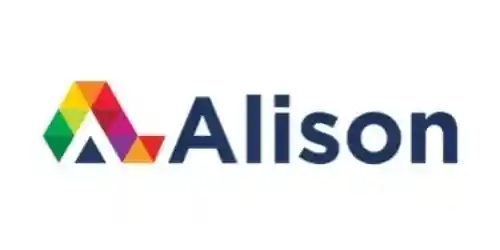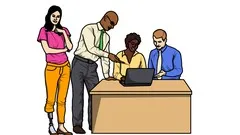
Introduction to Developmental Disorders 
Discover the essential topics on developmental disorders and learn how to care for children with these conditions in this free online course. From Autism to ADHD, this course covers specific conditions and introduces effective tools such as visual aids and social stories. Gain crucial strategies for handling meltdowns and teaching life skills to children with developmental disorders. Whether you're a parent or caregiver, this course provides vital information and tips to better care for children with developmental disorders. Start now to gain a deeper understanding and improve the lives of these children. ▼
ADVERTISEMENT
Course Feature
![]() Cost:
Cost:
Free
![]() Provider:
Provider:
Alison
![]() Certificate:
Certificate:
No Information
![]() Language:
Language:
English
Course Overview
❗The content presented here is sourced directly from Alison platform. For comprehensive course details, including enrollment information, simply click on the 'Go to class' link on our website.
Updated in [September 26th, 2023]
What does this course tell?
(Please note that the following overview content is from the original platform)
This free online course covers essential topics on developmental disorders and caring for children with developmental disorders. It begins by introducing developmental disorders in general, then explaining specific conditions such as Autism, Asperger's Syndrome and Attention Deficit and Hyperactivity Disorder (ADHD). The course then introduces visual aids as an effective tool in caring for autistic children, as they process images readily. The first half of the course concludes by introducing social stories as a method of teaching good behaviour.
The latter half covers meltdowns and teaching life skills to autistic children. It teaches crucial strategies for handling a child with a developmental disorder during a meltdown. It differentiates between a meltdown and a tantrum. It then teaches how children can be taught to carry out important functions like feeding and using the toilet independently. It covers strategies for handling selective feeders and tips for determining whether a child is ready to be trained to feed or use the bathroom themselves.
Living with Autism or similar developmental disorders presents tough challenges to children and the caregivers that have to look after them. This free online course provides vital information on developmental disorders, strategies, and tips on handling children with developmental disorders. It will be of great help to parents and handlers of autistic children, or any child for that matter. Start this free online course now to gain an understanding of such conditions and to better care for children with these conditions.
We considered the value of this course from many aspects, and finally summarized it for you from two aspects: skills and knowledge, and the people who benefit from it:
(Please note that our content is optimized through artificial intelligence tools and carefully reviewed by our editorial staff.)
What skills and knowledge will you acquire during this course?During this course, learners will acquire the following skills and knowledge:
1. Understanding of developmental disorders: Learners will gain a comprehensive understanding of developmental disorders, including Autism, Asperger's Syndrome, and ADHD. They will learn about the characteristics, symptoms, and challenges associated with these conditions.
2. Effective use of visual aids: Learners will learn how to use visual aids as a powerful tool in caring for children with Autism. They will understand how autistic children process images and how visual aids can enhance their communication and learning.
3. Utilizing social stories: Learners will be introduced to social stories as a method of teaching good behavior to children with developmental disorders. They will learn how to create and use social stories effectively to promote positive behavior and social skills.
4. Strategies for handling meltdowns: Learners will acquire crucial strategies for handling meltdowns in children with developmental disorders. They will learn to differentiate between meltdowns and tantrums and understand how to effectively manage and support a child during a meltdown.
5. Teaching life skills: The course will provide learners with strategies for teaching important life skills to children with developmental disorders. They will learn techniques for promoting independence in tasks such as feeding and using the toilet, as well as strategies for handling selective feeders.
6. Readiness assessment: Learners will gain insights into determining a child's readiness to be trained in feeding or using the bathroom independently. They will learn tips and techniques for assessing a child's readiness and implementing appropriate training methods.
Who will benefit from this course?
This course will benefit parents and caregivers of children with developmental disorders, such as Autism, Asperger's Syndrome, and ADHD. It will provide them with essential information on these conditions and strategies for caring for children with developmental disorders. The course covers topics such as using visual aids and social stories to support autistic children, handling meltdowns, and teaching life skills to children with developmental disorders. It will also be beneficial for professionals working in fields related to child development, such as teachers, therapists, and healthcare providers.
Course Syllabus
Introduction, Asperger's and Visual Aids
In this module. you will be introduced to developmental disorders, types of developmental disorders, and Visual Aids as a vital tool in managing children living with Autism and similar disorders.Meltdown Strategies and Life Skills
In this module, you will learn about meltdowns, and how to handle them with Autistic children. You will also learn about teaching important life skills, Self-feeding and Using the toilet to children living with Autism and similar developmental disorders.Course assessment
Course Provider

Provider Alison's Stats at AZClass
Discussion and Reviews
0.0 (Based on 0 reviews)
Explore Similar Online Courses

Neuroscience of Emotions and Social Cognition

Applied Behaviour Analysis

Python for Informatics: Exploring Information

Social Network Analysis

Introduction to Systematic Review and Meta-Analysis

The Analytics Edge

DCO042 - Python For Informatics

Causal Diagrams: Draw Your Assumptions Before Your Conclusions

Whole genome sequencing of bacterial genomes - tools and applications

Understanding Child Language Disorders

Autism at Work - Managing Autism in The Workplace


Start your review of Introduction to Developmental Disorders